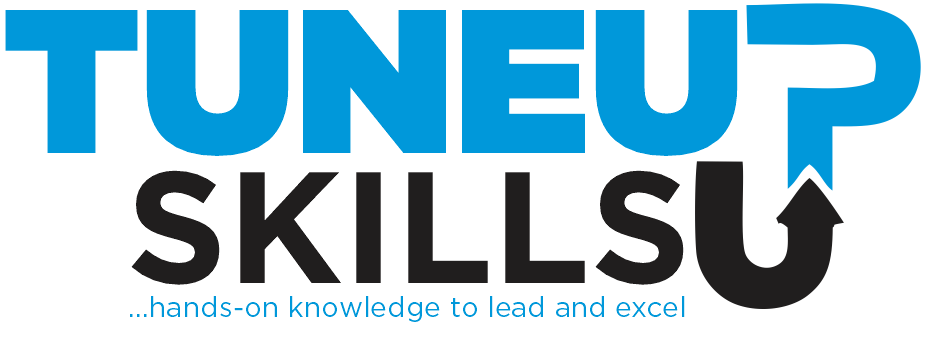- Home
- All Courses
- Project Managment
- Project Management Job-Ready
Curriculum
- 11 Sections
- 46 Lessons
- 6 Weeks
Expand all sectionsCollapse all sections
- Module 1: Foundations of Project & Program ManagementThis foundational module introduces participants to the core principles and structures that underpin effective project and program management. Learners will explore the distinctions between projects, programs, and portfolios, gaining clarity on their unique scopes, objectives, and strategic roles within organizations. The module also outlines the key responsibilities of Project Managers (PMs) and Program Managers (PgMs), providing insight into leadership, coordination, and delivery functions. Participants will examine the stages of the project lifecycle and the governance frameworks essential for program oversight. Additionally, the module offers an overview of globally recognized certifications—including PMP, PRINCE2, Agile, and PgMP—highlighting their relevance and value in advancing professional credibility and career growth.4
- Module 2: Initiating & Planning ProjectsThis module equips participants with the foundational tools and techniques required to successfully initiate and plan projects. Learners will gain expertise in developing persuasive business cases, clearly defining project scope and objectives, and identifying key deliverables. Emphasis is placed on stakeholder analysis and engagement strategies to ensure alignment and buy-in. Participants will also learn to construct a Work Breakdown Structure (WBS) and formulate a comprehensive project charter—critical components for setting direction and securing project approval.5
- Module 3: Scheduling & Budgeting TechniquesThis module focuses on the essential planning and financial competencies required to manage projects efficiently. Participants will learn to develop detailed project schedules using Gantt charts and apply the Critical Path Method (CPM) to identify task dependencies and optimize timelines. The module also covers effective resource allocation strategies, budget estimation techniques, and cost control measures to ensure financial discipline throughout the project lifecycle. Learners will gain hands-on exposure to leading project management tools, including MS Project, Smartsheet, and Primavera, enhancing their ability to plan, monitor, and deliver projects with precision.5
- Module 4: Managing Risk & Ensuring QualityThis module provides participants with the frameworks and tools necessary to proactively manage project risks and uphold quality standards. Learners will explore techniques for identifying potential risks, formulating mitigation strategies, and leveraging tools such as risk registers and heat maps for effective tracking. The module also clarifies the distinctions between quality assurance and quality control, emphasizing their roles in maintaining project integrity. Participants will be introduced to globally recognized quality frameworks, including ISO standards and foundational Six Sigma methodologies, to support continuous improvement and operational excellence.4
- Module 5: Agile & Hybrid ApproachesThis module introduces participants to adaptive project management methodologies that support flexibility, collaboration, and iterative delivery. Learners will explore core Agile principles and the Scrum framework, along with complementary approaches such as Kanban, SAFe, and Lean. The module also examines hybrid project management models that integrate traditional and Agile practices to suit diverse project environments. Participants will gain practical experience with leading Agile tools—including Jira and Monday.com—to enhance team coordination, transparency, and responsiveness throughout the project lifecycle.4
- Module 6: Program Management EssentialsThis module provides a strategic overview of program management, emphasizing the coordination of multiple related projects to achieve broader organizational objectives. Participants will explore the full program lifecycle, with a focus on benefits realization and value delivery. Key topics include managing interdependencies, optimizing shared resources, and establishing effective governance through steering committees and oversight structures. The module also addresses program-level risk management and change control, equipping learners to lead complex initiatives with confidence and clarity.4
- Module 7: Communication & Leadership ExcellenceThis module emphasizes the interpersonal and strategic leadership competencies essential for successful project delivery. Participants will learn to design effective stakeholder communication plans that foster transparency and alignment. The curriculum explores advanced techniques in conflict resolution and negotiation, equipping learners to manage challenges with confidence and diplomacy. Through an examination of leadership styles and team dynamics, participants will gain insights into motivating diverse teams and cultivating high-performance cultures. The module also covers executive-level reporting and dashboard creation, enabling clear, data-driven communication with senior stakeholders.4
- Module 8: Leveraging Tools & TechnologyThis module introduces participants to the digital ecosystem that supports modern project execution and collaboration. Learners will explore leading project management software solutions and gain familiarity with platforms that enhance team communication, such as Slack and Microsoft Teams. The module also covers data visualization tools—including Power BI and Tableau—that enable clear, impactful reporting. Best practices in document control and version management are emphasized to ensure accuracy, traceability, and compliance throughout the project lifecycle.4
- Module 9: Capstone Project ExperienceThis culminating module offers participants a hands-on opportunity to apply their learning in a simulated, real-world project environment. Through end-to-end planning and execution, learners will demonstrate their ability to manage scope, timelines, resources, and stakeholder expectations. Participants will present project outcomes to mock stakeholders, gaining experience in professional communication and executive reporting. The module concludes with structured peer reviews and feedback sessions, fostering collaborative learning and reflective practice.4
- Module 10: Career Readiness & Professional BrandingThis final module empowers participants to confidently transition into the workforce by refining their professional presence and career strategy. Learners will gain practical guidance on optimizing resumes and LinkedIn profiles to align with industry expectations. Through mock interview sessions, participants will build communication skills and prepare for real-world hiring scenarios. The module also explores certification pathways—including PMP, CAPM, and PgMP—providing clarity on credentialing options and career trajectories. To showcase their capabilities, participants will assemble a polished project portfolio that highlights their applied skills and readiness for project management roles.4
- Assessment & CertificationTo ensure mastery and practical application of key concepts, participants will engage in weekly quizzes and applied assignments throughout the program. Formal evaluations include midterm and final project presentations, culminating in a comprehensive capstone project assessment. Upon successful completion, participants will receive a Certificate of Completion along with tailored guidance for pursuing industry-recognized certifications such as PMP and PgMP.4
Core responsibilities of Project Managers (PMs) and Program Managers (PgMs)
Next
